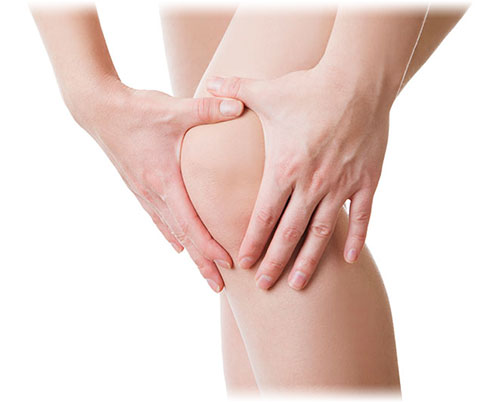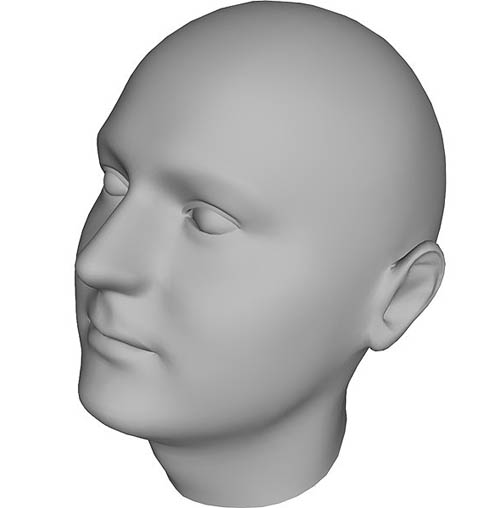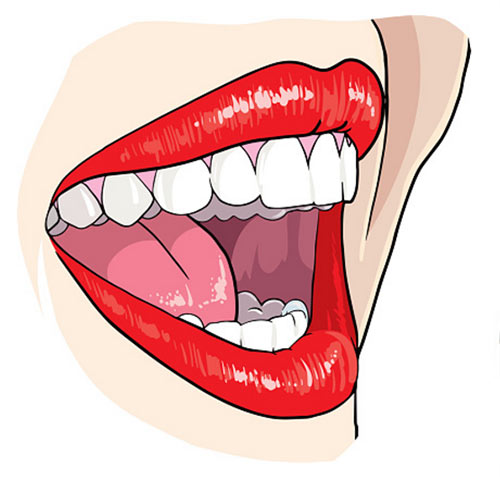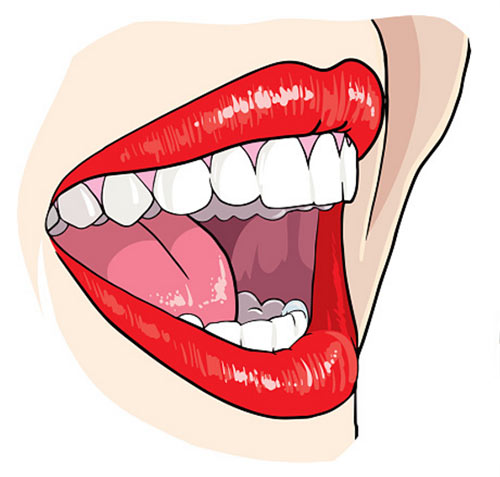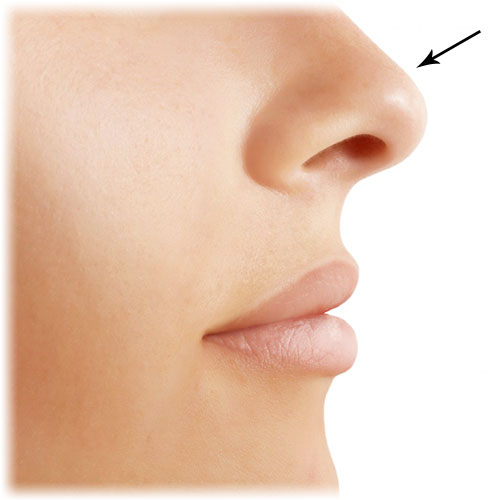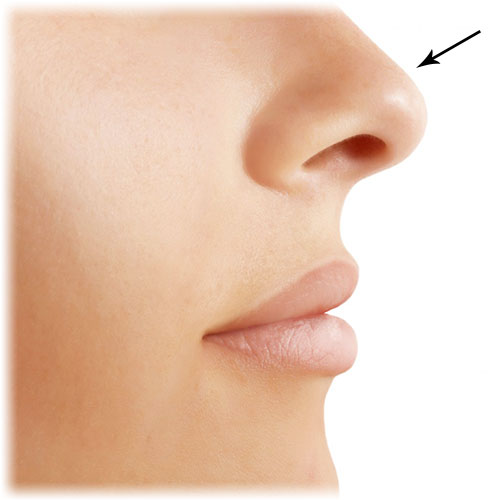neck
The part of the body that joins the head to the shoulders
گردن
Camels have long necks.
شترها گردن درازی دارند.
The part of the body that joins the head to the shoulders
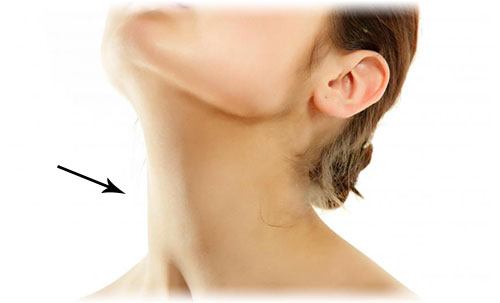
گردن
Camels have long necks.
شترها گردن درازی دارند.
Oxford Essential Dictionary
neck
noun
1 the part of your body between your shoulders and your head:
Helen wore a thick scarf round her neck.
2 the part of a piece of clothing that goes round your neck:
The neck's too tight.
3 the thin part at the top of a bottle
Longman Dictionary of Contemporary English
neck
I. neck1 S2 W2 /nek/ BrE AmE noun
[Language: Old English; Origin: hnecca]
1. PART OF THE BODY [countable] the part of your body that joins your head to your shoulders, or the same part of an animal or bird
around sb’s neck
Jean wore a string of pearls around her neck.
Mike rubbed the back of his neck.
You have a lot of tension in your neck muscles.
He patted his horse’s neck.
She had a mass of golden hair, which she wore in a coil at the nape (=back) of her neck.
The dog picked up the puppy and carried it by the scruff (=back) of the neck into the house.
2. CLOTHING [countable] the part of a piece of clothing that goes around your neck
neck of
The neck of his shirt was open.
The sweater has a round neck and long sleeves.
V-necked/open-necked etc
a navy V-necked sweater ⇨ ↑crew neck, ↑polo neck, ↑scoop neck, ↑turtleneck, ↑V-neck
3. NARROW PART [countable] the narrow part of something, usually at the top
neck of
Lara put the cork back in the neck of the bottle.
a crack in the neck of the violin
4. be up to your neck in something
a) to be very busy with something:
She’s up to her neck in work.
b) to be in a difficult situation that is hard to escape from:
Jim’s up to his neck in debt.
5. neck and neck (with somebody) informal if two competitors or groups are neck and neck in a competition or race, they are level with each other:
Opinion polls show the two main parties are running neck and neck.
6. in this/sb’s neck of the woods informal in a particular area or part of the country:
I haven’t been in this neck of the woods for years.
7. get it in the neck British English spoken to be punished or criticized:
If we don’t make some changes we’ll all get it in the neck.
8. by a neck informal if a race, especially a horse race, is won by a neck, the winner is only a very short distance in front:
Our horse won by a neck.
9. ATTITUDE [uncountable] (also brass neck) British English informal a confident attitude that makes you able to do unreasonable or shocking things without feeling embarrassed SYN nerve, cheek:
I don't know how they have the neck to charge that much!
10. LAND [countable] a narrow piece of land that comes out of a wider part:
a neck of land between a lake and the sea
11. (hang) around your neck if something hangs around your neck, it keeps causing you problems ⇨ be breathing down sb’s neck at ↑breathe(5), ⇨ I’ll wring sb’s neck at ↑wring(6), ⇨ pain in the neck at ↑pain1(3), ⇨ risk your neck at ↑risk2(1), ⇨ save sb’s neck at ↑save1(11), ⇨ stick your neck out at ↑stick out(3)
Oxford Advanced Learner's Dictionary
neck
neck [neck necks necked necking] noun, verb [nek] [nek]
noun
1. countable the part of the body between the head and the shoulders
• He tied a scarf around his neck.
• I woke up with a stiff neck.
• Giraffes have very long necks.
• She craned (= stretched) her neck to get a better view.
• He broke his neck in the fall.
• Somebody's going to break their neck (= injure themselves) on these steps.
2. countable the part of a piece of clothing that fits around the neck
• What neck size do you take?
see also crew neck, polo neck, turtleneck, V-neck
3. -necked (in adjectives) having the type of neck mentioned
• a round-necked sweater
see also open-necked, stiff-necked
4. countable ~ (of sth) a long narrow part of sth
• the neck of a bottle
• a neck of land
5. uncountable ~ (of sth) the neck of an animal, cooked and eaten
• neck of lamb
see also bottleneck, redneck, roughneck
more at put/lay your head/neck on the block at block n., brass neck/nerve at brass, breathe down sb's neck at breathe, a millstone round your/sb's neck at millstone, a pain in the neck at pain n., risk your neck at risk v., save sb's bacon/necksave your (own) skin/hide/neck at save v., by the scruff of the/your neck at scruff, stick your neck out at stick v., wring sb's neck at wring
Word Origin:
Old English hnecca ‘back of the neck’, of Germanic origin; related to Dutch nek ‘neck’ and German Nacken ‘nape’.
Collocations:
Physical appearance
A person may be described as having:
Eyes
(bright) blue/green/(dark/light) brown/hazel eyes
deep-set/sunken/bulging/protruding eyes
small/beady/sparkling/twinkling/(informal) shifty eyes
piercing/penetrating/steely eyes
bloodshot/watery/puffy eyes
bushy/thick/dark/raised/arched eyebrows
long/dark/thick/curly/false eyelashes/lashes
Face
a flat/bulbous/pointed/sharp/snub nose
a straight/a hooked/a Roman/(formal) an aquiline nose
full/thick/thin/pouty lips
dry/chapped/cracked lips
flushed/rosy/red/ruddy/pale cheeks
soft/chubby/sunken cheeks
white/perfect/crooked/protruding teeth
a large/high/broad/wide/sloping forehead
a strong/weak/pointed/double chin
a long/full/bushy/wispy/goatee beard
a long/thin/bushy/droopy/handlebar/pencil moustache/ (especially US) mustache
Hair and skin
pale/fair/olive/dark/tanned skin
dry/oily/smooth/rough/leathery/wrinkled skin
a dark/pale/light/sallow/ruddy/olive/swarthy/clear complexion
deep/fine/little/facial wrinkles
blonde/blond/fair/(light/dark) brown/(jet-)black/auburn/red/(BrE) ginger/grey hair
straight/curly/wavy/frizzy/spiky hair
thick/thin/fine/bushy/thinning hair
dyed/bleached/soft/silky/dry/greasy/shiny hair
long/short/shoulder-length/cropped hair
a bald/balding/shaved head
a receding hairline
a bald patch/spot
a side/centre/(US) center (BrE) parting/ (NAmE) part
Body
a long/short/thick/slender/(disapproving) scrawny neck
broad/narrow/sloping/rounded/hunched shoulders
a bare/broad/muscular/small/large chest
a flat/swollen/bulging stomach
a small/tiny/narrow/slim/slender/28-inch waist
big/wide/narrow/slim hips
a straight/bent/arched/broad/hairy back
thin/slender/muscular arms
big/large/small/manicured/calloused/gloved hands
long/short/fat/slender/delicate/bony fingers
long/muscular/hairy/shapely/(both informal, often disapproving) skinny/spindly legs
muscular/chubby/(informal, disapproving) flabby thighs
big/little/small/dainty/wide/narrow/bare feet
a good/a slim/a slender/an hourglass figure
be of slim/medium/average/large/athletic/stocky build
Example Bank:
• He was wearing a black V-neck sweater.
• He wore a casual shirt with an open neck.
• He's out to save his own political neck.
• I craned my neck to see what was happening at the front.
• I craned my neck to see what was happening at the head of the queue.
• I cricked my neck playing tennis and now I can't turn round properly.
• I had a crick in my neck from staring up at the sky so long.
• I keep the key on a string around my neck.
• I'm not going to risk my neck playing rugby with you!
• She's been wearing a neck brace since her car crash.
• The cat picked up her kitten by the scruff of its neck.
• The hairs on the back of my neck prickled with fear.
• The veins in his neck stood out like knotted rope.
• When he was late again I wanted to wring his neck.
• the narrow neck of land between the lake and the sea
Idioms: by a neck ▪ get it in the neck ▪ neck and neck ▪ neck of the woods ▪ up to your neck in something
Cambridge Advanced Learner's Dictionary
Cambridge Advanced Learner's Dictionary - 4th Edition
neck / nek / noun [ C ] (BODY PART)
A2 the part of the body that joins the head to the shoulders:
He had the thickest neck I'd ever seen.
She wore a gold chain around her neck.
See picture neck
See picture body
C2 the part of a piece of clothing that goes around a person's neck:
This sweater's too tight at the neck.
He wasn't wearing a tie and his shirt was open at the neck.
a low-neck dress
See picture neck
neck / nek / noun [ C ] (TOP PART)
part of a hollow object that is at the top and is narrower than the part below it:
the neck of a bottle/guitar
→ See also bottleneck , halterneck , redneck , roughneck , turtleneck
See picture neck
© Cambridge University Press 2013
Collins COBUILD Advanced Learner’s English Dictionary
neck
/nek/
(necks, necking, necked)
Frequency: The word is one of the 3000 most common words in English.
1.
Your neck is the part of your body which joins your head to the rest of your body.
She threw her arms round his neck and hugged him warmly...
He was short and stocky, and had a thick neck.
N-COUNT: usu poss N
2.
The neck of an article of clothing such as a shirt, dress, or sweater is the part which surrounds your neck.
...the low, ruffled neck of her blouse...
He wore a blue shirt open at the neck.
N-COUNT: usu sing
3.
The neck of something such as a bottle or a guitar is the long narrow part at one end of it.
Catherine gripped the broken neck of the bottle.
N-COUNT: usu the N of n
4.
If two people are necking, they are kissing each other in a sexual way. (INFORMAL)
They sat talking and necking in the car for another ten minutes...
I found myself behind a curtain, necking with my best friend’s wife.
= snog
V-RECIP: usu cont, pl-n V, V with n, also V n (non-recip)
5.
If you say that someone is breathing down your neck, you mean that they are watching you very closely and checking everything you do.
Most farmers have bank managers breathing down their necks.
PHRASE: V and N inflect
6.
In a competition, especially an election, if two or more competitors are neck and neck, they are level with each other and have an equal chance of winning.
The latest polls indicate that the two main parties are neck and neck...
The party is running neck-and-neck with Labour.
PHRASE: usu v-link PHR, oft PHR with n
7.
If you say that someone is risking their neck, you mean they are doing something very dangerous, often in order to achieve something.
I won’t have him risking his neck on that motorcycle.
PHRASE: V and N inflect
8.
If you stick your neck out, you bravely say or do something that might be criticized or might turn out to be wrong. (INFORMAL)
During my political life I’ve earned myself a reputation as someone who’ll stick his neck out, a bit of a rebel.
PHRASE: V and N inflect
9.
If you say that someone is in some sort of trouble or criminal activity up to their neck, you mean that they are deeply involved in it. (INFORMAL)
He is probably up to his neck in debt.
PHRASE: N inflects
10.
Someone or something that is from your neck of the woods is from the same part of the country as you are. (INFORMAL)
It’s so good to see you. What brings you to this neck of the woods?
PHRASE: usu in PHR
11.
to have a millstone round your neck: see millstone
the scruff of your neck: see scruff
Merriam-Webster's Advanced Learner's Dictionary
1neck /ˈnɛk/ noun, pl necks [count]
1 : the part of the body between the head and the shoulders
• She craned/stretched her neck to see what was going on.
• A giraffe is an animal with a very long neck.
• He broke his neck in the accident.
• Stop jumping on the bed. You're going to break your neck. [=you're going to hurt yourself]
- see picture at human
2 : the part of a piece of clothing that fits around your neck
• He likes T-shirts with round necks.
- see also crew neck, polo neck, scoop neck, turtleneck, v-neck
3 : a long and narrow part of something : a part that is shaped like a neck
• He grabbed the neck of the bottle.
• a neck of land [=a narrow stretch of land]
• a guitar's neck
breathe down someone's neck
- see breathe
dead from the neck up
- see 1dead
get it in the neck Brit informal : to be severely punished or criticized
• He really got it in the neck for not finishing the job on time.
neck and neck : extremely close together in a race or contest
• The two candidates for president were neck and neck in the election.
• The two horses were running neck and neck to the finish line.
neck of the woods informal : the place or area where someone lives
• He's from my neck of the woods. [=he's from the area where I live]
• How is the weather in your neck of the woods?
risk your neck : to do something that puts you in danger of serious injury or death
• I would never risk my neck on a sport like skydiving.
• News reporters often risk their necks by working in war zones.
save someone's neck
- see 1save
stick your neck out : to do or say something you think is important even though it may have bad results
• He's not afraid to stick his neck out to help people he thinks are being mistreated.
• I respect my boss because she will stick her neck out against unfair policies.
up to your neck in : deeply involved in or affected by (something)
• She's up to her neck in work. [=she's very busy]
• He's up to his neck in debt.
wring someone's neck

